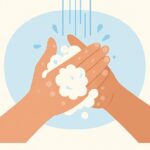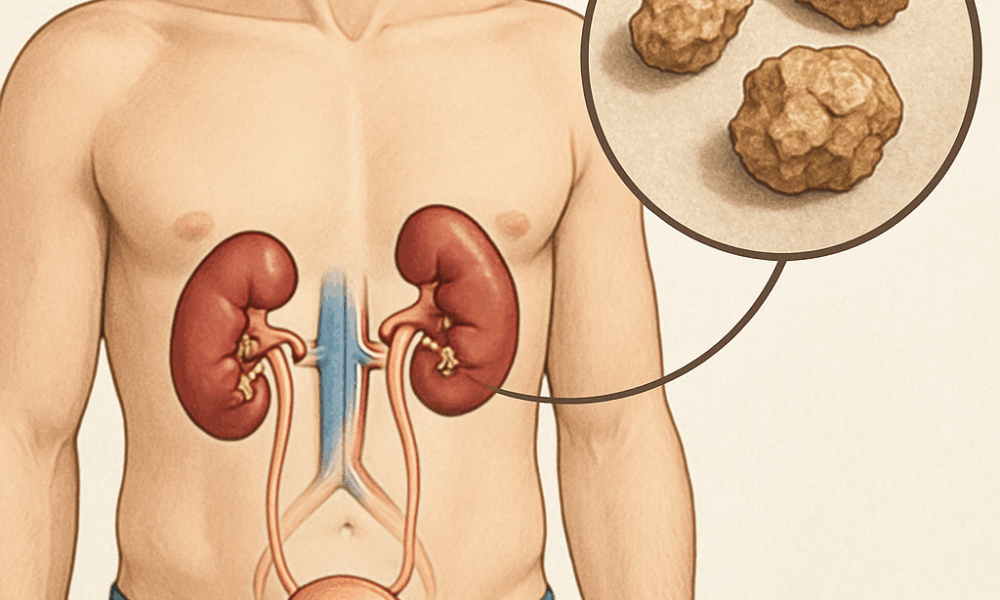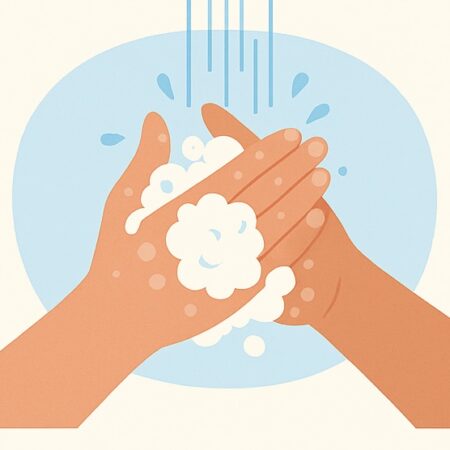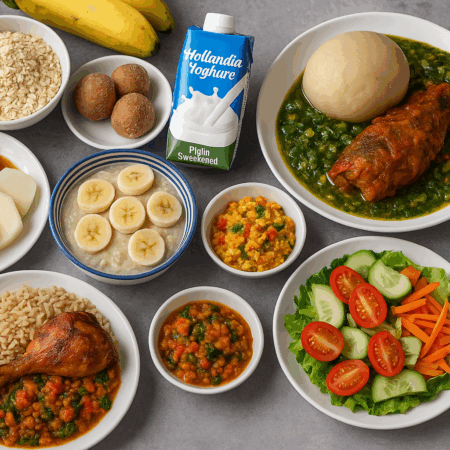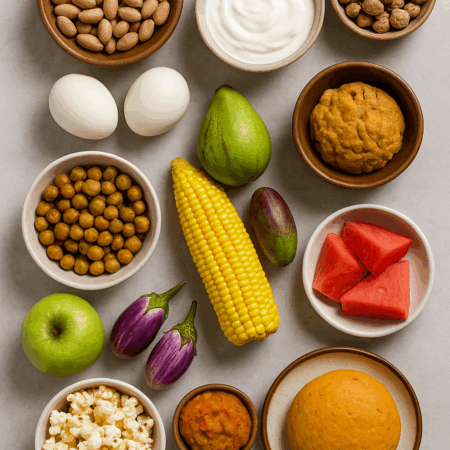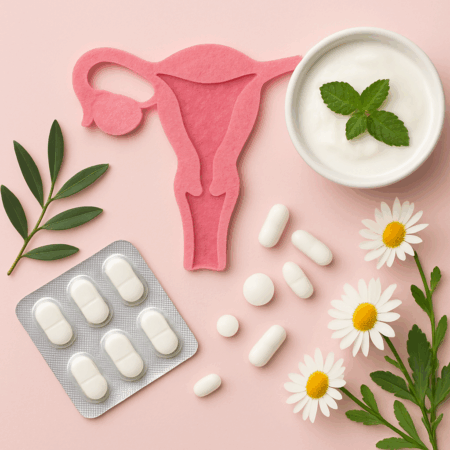Everything You Need to Know About Kidney Stones in Men: Symptoms, Causes, and What to Do
Kidney stones are not something anyone wants to deal with—especially not men, who tend to feel the symptoms more intensely due to how the male urinary tract is structured. In Nigeria today, cases of kidney stones are rising, and the main culprits are dehydration, diet, and sometimes, genetics.
So what exactly are kidney stones? How do they show up in men? And what can you do about them before they knock you off your feet?
Let’s break it all down.
What Are Kidney Stones?
Kidney stones are hard, crystal-like deposits that form inside your kidneys. They’re made up of minerals and salts—like calcium, uric acid, and oxalate—that get too concentrated in your urine and stick together.
Over time, these deposits grow and can block parts of your urinary tract, causing excruciating pain.
In Nigeria, cases are commonly triggered by:
-
Low water intake (especially in hot weather)
-
High consumption of red meat and salt
-
Too many processed foods
-
Lack of early medical checks
Why Men Are More at Risk
Men are two to three times more likely to develop kidney stones than women. Here’s why:
-
Testosterone may increase the excretion of stone-forming substances.
-
The male urethra is longer, so when a stone moves down, the pain is more severe and more spread out—often hitting the back, abdomen, and groin.
Key Symptoms of Kidney Stones in Men
Below are the top warning signs that a man might have kidney stones:
1. Severe Back or Side Pain
-
The pain usually starts suddenly and becomes intense.
-
It may begin in your back or side (flank) and move toward your lower abdomen or groin.
-
It can come in waves—intensifying and easing up periodically.
2. Pain That Radiates to the Groin or Testicles
-
A very common symptom in men.
-
The pain travels from the lower back to the testicles or penis as the stone moves through the ureter.
3. Painful Urination (Dysuria)
-
A burning or stinging feeling when urinating.
-
You may feel a constant urge to urinate, even if nothing comes out.
4. Blood in Urine (Hematuria)
-
Your urine might look pink, reddish, or tea-colored.
-
Sometimes the blood is microscopic and only detected during a lab test.
5. Cloudy or Bad-Smelling Urine
-
A sign of infection or the presence of pus in the urine (pyuria).
6. Nausea and Vomiting
-
Caused by intense pain or the body’s reaction to the stone blocking the kidneys.
7. Fever and Chills
-
This is a red flag. It may mean you have a kidney infection, which requires immediate medical attention.
What Causes Kidney Stones in Nigerian Men?
Some common lifestyle and dietary causes here include:
-
Dehydration: Not drinking enough water, especially under Nigeria’s hot climate.
-
High salt intake: Found in seasoning cubes, salty snacks, and instant noodles.
-
High protein diets: Excess red meat and fish increase uric acid.
-
Low calcium diets: Ironically, not getting enough calcium can increase oxalate in the urine.
-
Sugary drinks: Especially soda and energy drinks.
-
Genetics: If your father or brother had kidney stones, your risk is higher.
Types of Kidney Stones (and What They’re Made Of)
-
Calcium Stones – Most common; caused by high calcium or oxalate in urine.
-
Uric Acid Stones – Linked to eating too much red meat and seafood.
-
Struvite Stones – Often result from urinary tract infections.
-
Cystine Stones – Rare and usually inherited.
How Are Kidney Stones Diagnosed in Nigeria?
You may be asked to:
-
Provide a urine sample
-
Get a kidney scan (ultrasound or CT)
-
Undergo blood tests to check for high calcium or uric acid
Most general hospitals and private labs offer these tests at affordable rates, especially in cities like Lagos, Abuja, and Enugu.
Treatment Options Available
Treatment depends on the size and type of the stone:
1. Small Stones
-
Drink 2–3 liters of water daily to flush it out.
-
Use pain relievers like ibuprofen or diclofenac.
-
Doctors may prescribe alpha-blockers to relax the ureters and help the stone pass.
2. Larger Stones or Severe Pain
-
Lithotripsy (using sound waves to break the stone)
-
Ureteroscopy (a small scope inserted through the urethra)
-
Surgery (rare, but used for very large or stubborn stones)
How to Prevent Kidney Stones Naturally
Here are some practical, Nigeria-specific tips:
-
Drink lots of clean water—aim for at least 3 liters daily, especially in hot weather.
-
Cut back on:
-
Red meat
-
Seasoning cubes
-
Canned or salty foods
-
-
Eat more vegetables and fruits, especially those rich in water like watermelon and cucumber.
-
Use lemon juice in your water—it contains citrate, which prevents stones.
-
Avoid drinking too much soda or soft drinks.
-
Don’t overdo vitamin C supplements—they may increase oxalate in urine.
-
Limit garri if you already have a history of oxalate-based stones.
Final Thoughts
Kidney stones are painful but preventable. As a man, you should never ignore sudden lower back pain or discomfort when urinating. The earlier you catch it, the easier it is to treat.
Don’t wait until the pain becomes unbearable. Stay hydrated, eat right, and get checked when something feels off.
If you’ve had kidney stones before, staying stone-free is a lifelong commitment—but it’s doable.
Written by Dr Rita
For Daily4mative.com



